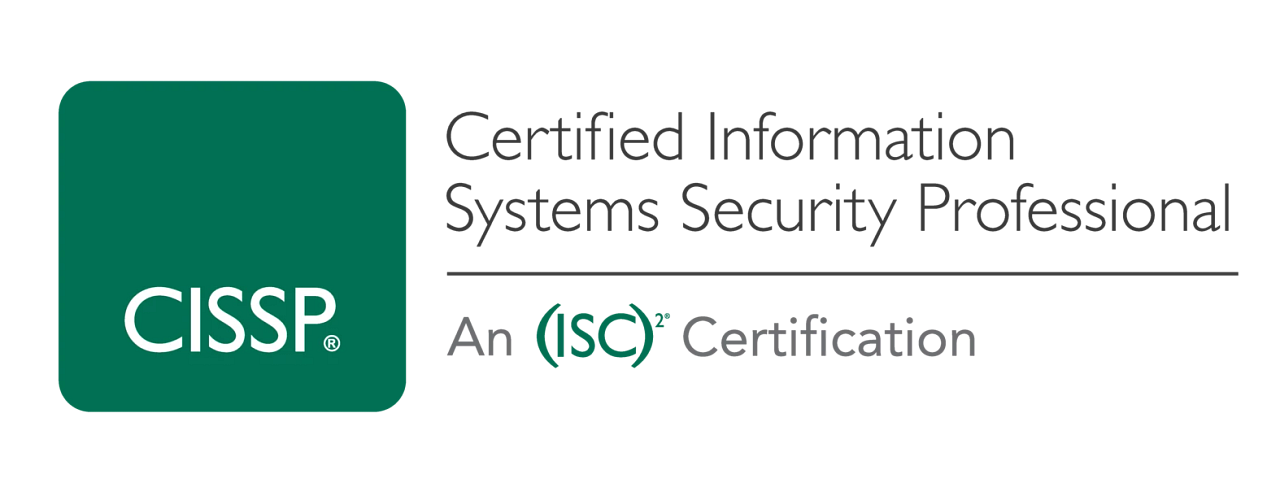Course Overview
The Certified Information Systems Security Professional (CISSP) is a globally recognized certification offered by (ISC)2, which is a leading professional organisation in the field of information security. The CISSP certification is designed to validate the knowledge, skills, and experience of information security professionals in various domains of information security. CISSP is one of the most sought-after certifications in the field of information security, and it is widely recognized by employers and organisations worldwide.
Schedule Dates
CISSP: Certified Information Systems Security Professional In Sharjah
CISSP: Certified Information Systems Security Professional In Sharjah
CISSP: Certified Information Systems Security Professional In Sharjah
CISSP: Certified Information Systems Security Professional In Sharjah
Course Content
- Understand and Apply Security ConceptsCopy
- Evaluate and Apply Security Governance PrinciplesCopy
- Determine Compliance and Other RequirementsCopy
- Legal and Regulatory Issues that Pertain to Information Security in a Global ContextCopy
- Requirements for Investigation TypesCopy
- Develop, Document, and Implement Security Policy, Standards, Procedures, and GuidelinesCopy
- Identify, Analyse, and Prioritise Business Continuity (BC) RequirementsCopy
- Contribute to and Enforce Personnel Security Policies and ProceduresCopy
- Understand and Apply Risk Management ConceptsCopy
- Understand and Apply Threat Modelling Concepts and MethodologiesCopy
- Apply Supply Chain Risk Management (SCRM) ConceptsCopy
- Establish and Maintain a Security Awareness, Education, and Training ProgramCopy
- Identify and Classify Information and AssetsCopy
- Establish Information and Asset Handling RequirementsCopy
- Provision Resources SecurelyCopy
- Manage Data LifecycleCopy
- Ensure Appropriate Asset RetentionCopy
- Data Security Controls and Compliance RequirementsCopy
- Research, Implement, and Manage Engineering Processes Using Secure Design PrinciplesCopy
- Fundamental Concepts of Security ModelsCopy
- Select Controls Based Upon Systems Security RequirementsCopy
- Security Capabilities of Information SystemsCopy
- Assess and Mitigate the Vulnerabilities of Security Architectures, Designs, and Solution ElementsCopy
- Cryptographic Life CycleCopy
- Methods of Cryptanalytic AttacksCopy
- Apply Security Principles to Site and Facility DesignCopy
- Design Site and Facility Security ControlsCopy
- Implement Secure Design Principles in Network ArchitecturesCopy
- Secure Network ComponentsCopy
- Implement Secure Communication Channels According to DesignCopy
- Control Physical and Logical Access to AssetsCopy
- Manage Identification and Authentication of People, Devices, and ServicesCopy
- Integrate Identity as a Third-Party ServiceCopy
- Implement and Manage Authorization MechanismsCopy
- Manage the Identity and Access Provisioning LifecycleCopy
- Implement Authentication SystemsCopy
- Design and Validate Assessment, Test, and Audit StrategiesCopy
- Conduct Security Control TestingCopy
- Collect Security Process DataCopy
- Analyze Test Output and Generate ReportCopy
- Conduct or Facilitate Security AuditsCopy
- Understand and Support InvestigationsCopy
- Requirements for Investigation TypesCopy
- Conduct Logging and Monitoring ActivitiesCopy
- Securely Provisioning ResourcesCopy
- Understand and Apply Foundational Security Operations ConceptsCopy
- Apply Resource Protection TechniquesCopy
- Conduct Incident ManagementCopy
- Operate and Maintain Detective and Preventative MeasuresCopy
- Implement and Support Patch and Vulnerability ManagementCopy
- Participate in Change Management ProcessesCopy
- Implement Recovery StrategiesCopy
- Integrate Security in the Software Development Life Cycle (SDLC)Copy
- Identify and Apply Security Controls in Development EnvironmentsCopy
- Assess the Effectiveness of Software SecurityCopy
- Assess Security Impact of Acquired SoftwareCopy
- Define and Apply Secure Coding Guidelines and StandardsCopy
FAQs
The prerequisites to attend this course are having at least five years of professional experience in the field of information security and a four-year college degree or an approved equivalent.
The CISSP training course is delivered over a period of five days, with each day consisting of eight hours of instruction.
Upon completion of the course, participants will be eligible to sit for the CISSP certification exam. The exam is administered by the International Information System Security Certification Consortium, or (ISC)², and covers eight domains of information security. A passing score on the exam is required to earn the CISSP certification after this you will be able to get a completion certificate.
The Certified Information System Security Professional (CISSP) certification is highly regarded in the field of information security and is recognized globally as a standard for IT security professionals. Individuals may pursue various career opportunities in the following roles of Information Security Analyst, Security Manager, Security Consultant, Security Architect, Chief Information Security Officer (CISO), and Penetration Tester. Overall, the CISSP certification can open up a variety of career opportunities for information security professionals and provide them with the skills and knowledge needed to succeed in the field.
CISSP is an abbreviation of the Certified Information Systems Security Professional.
The famous eight domains of CISSP’s common body of knowledge(CBK) are Security and Risk Management Asset Security Security Architecture and Engineering Communications and Network Security Identity and Access Management Security Assessment and Testing Security Operations Software Development Security
There are some pre-requisite for the CISSP exam which has to be fulfilled before applying for this exam. The candidate must have 5 years of industry experience in at least two domains of the CBK (Common Book Of Knowledge). Must have a minimum 4-year college degree in IT. You must have to enrol in the CISSP training program to understand and get a command of its modules to appear in the exam.






